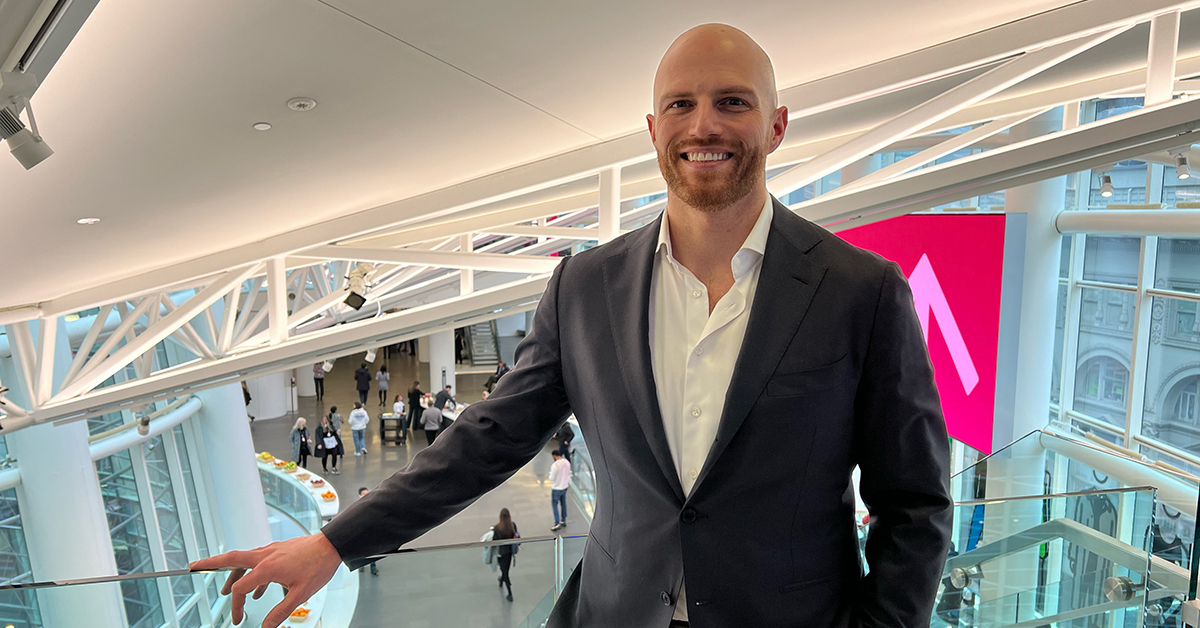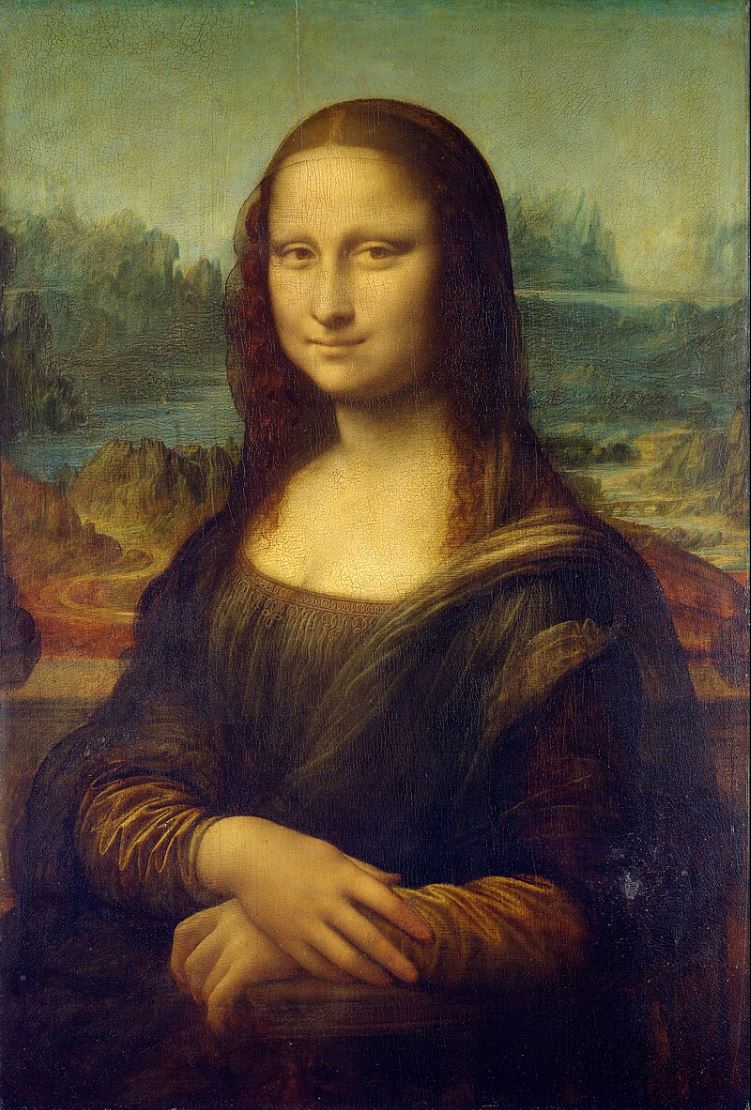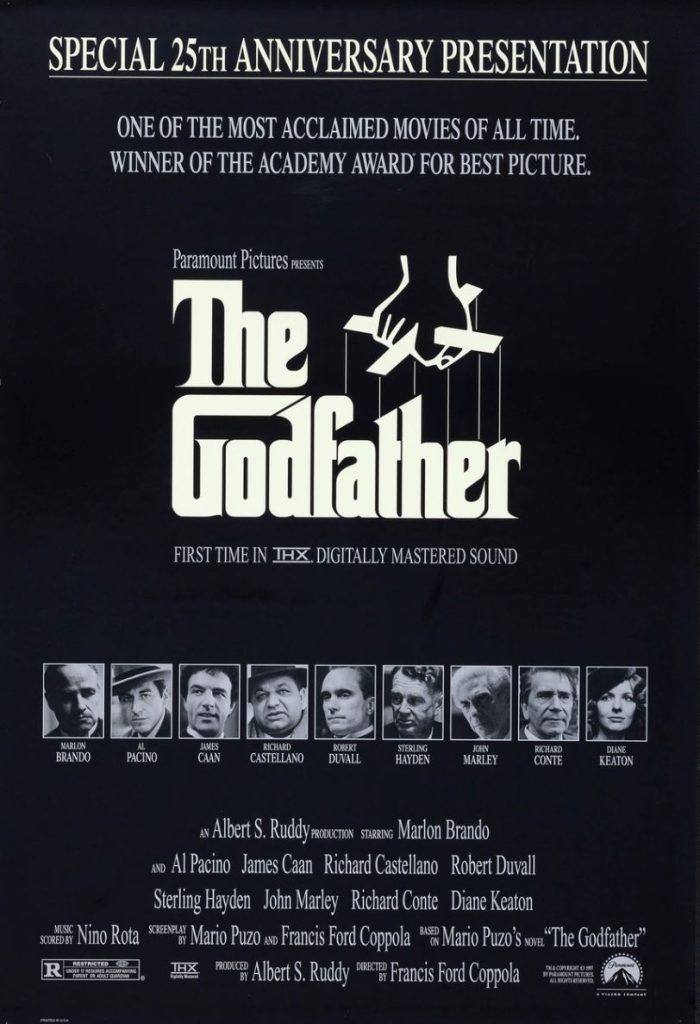August 1, 2024
Bloomberg Media Studios started the New Creativity Speaker Series to connect with creators doing remarkable work across all mediums and to share new thinking and best practices from leaders in their fields. In this latest article, we learn how artificial intelligence tools could usher in a new era of human creativity from tech entrepreneur, neurologist and Super Data Science podcast host Jon Krohn.

Jon Krohn, Chief Data Scientist at the machine learning company Nebula, visits Bloomberg to talk about the intersection of AI and creativity. Photo Credit: Nikki Duong
By Michael Walker, Global Executive Editor, Bloomberg Media Studios
What is the future of creativity in an era of artificial intelligence? Could an AI application someday create something as breathtakingly beautiful and inspirational as the ceiling of the Sistine Chapel or as poetic, dramatic and psychologically penetrating as Macbeth?
These questions are becoming more relevant with each passing day as AI applications exhibit the ability to create original stories, artwork, films, poems and songs with increasing sophistication.
For AI expert Jon Krohn, the future of AI and creativity is complicated. There’s no limitation in the technology that would prevent AI from arranging pixels to create something as original and transfixing as the world’s most renowned paintings, but the experience of viewing AI art might feel a little empty.
“Part of what makes great art interesting to humans is the story behind it,” Jon says. “The ‘Mona Lisa’ is famous because it was stolen and recovered. It isn’t necessarily better than ‘Starry Night’ but ‘Mona Lisa’ has a good story behind it. Art happens in a context, and AI doesn’t have that same kind of feel. It doesn’t have that human story. If it’s made by a machine, no matter how great it is, you might not connect with it as well.”

The Mona Lisa was stolen from then Louvre in Paris in 1911, an incident which contributed to the painting’s enduring fame.
What’s exciting for creators today isn’t AI-generated art, but rather how these new AI tools can help expand their own creative ideas and augment their skills to tackle more ambitious projects. AI tools could help writers with first drafts, help video directors envision the opening of a movie or a specific scene without having to shoot anything, and show artists alternative ways to achieve their vision.
“With creative work, at least for the foreseeable future, you are in the perfect position where you can take advantage of these tools and augment what you’re doing,” Krohn says. “I think it’s all a really great opportunity.”
For a guide into our AI-powered future, Jon’s credentials are impeccable. He has a doctorate in neuroscience from the University of Oxford, he’s a co-founder and the chief data scientist at Nebula-io, a machine-learning startup, and he hosts the popular Super Data Science Podcast where he talks to the scientists and futurists who are leading advancements in AI, while breaking down the latest news and technological developments.
Originally from Canada, Jon now lives in New York City. He’s a former rock musician, a weightlifter and all-round chill guy. He also thinks I’m crazy to actually be writing this article myself and not using ChatGPT4, which he says would be faster, better and more accurate.
Before diving into AI and creativity, Jon wanted to explain the reasons that we’re in this new age of AI. Because the artificial neurons behind deep learning aren’t new—the algorithm for these neurons was invented in the 1950s at Cornell.
The reason that we’re seeing self-driving cars, smart factories and AI-powered consumer products now, he said, is that we’re able to collect a lot more data than ever before, and data storage and computing costs are decreasing exponentially.
In the past, the kind of machine learning known as deep learning didn’t perform well because it didn’t have enough data or computing power. That’s all changed, and the result is that deep learning, which is behind all large language models like ChatGPT, is now thriving.
“The more data that a deep learning system has, the better it can perform,” Jon said. “Whether you’re talking about facial recognition on your phone, that’s a deep learning system, or a natural language processing system like ChatGPT, that’s using a deep learning system, and so is a Google search that’s predicting what pages you’re going to want to see. Any of the intuitive-feeling AI capabilities that you get from your devices, 99% are happening because of deep learning.”
Anyone who uses AI tools has a “holy sh–!” moment. For Jon, that moment happened in March of 2023, when OpenAI released ChatGPT4.
“The GPT4 algorithm, it constantly still stuns me today,” Jon says. “I use it on a wide variety of tasks on a daily basis related to writing, ideating, any kind of business problem. It has brilliant ideas and articulates them well, and you can dive deeper into any topic. It’s like having a million gurus on call at Bloomberg that you can just pick up the phone and get brilliant advice instantly for this very specific problem.”

Could AI ever make a film that equals the drama and artistry of The Godfather? AI expert Jon Krohn says that’s unlikely.
Of course, artificial intelligence has a darker side and Jon advises that anyone who uses artificial intelligence to be aware of the dangers and be an active participant in efforts to use AI responsibly. Mass surveillance is an issue. Biases are also a major flaw in AI because systems like ChatGPT are trained on data from the internet and the internet is filled with overt and subtle biases.
The most unsettling AI risk might be the singularity – the theoretical point when machines become more intelligent than us at everything we do. If that ever happens, Jon says, it becomes impossible to predict what the world will be like because the machines will be operating at another level.
But Jon believes that the more likely scenario is that AI will help humanity – from AI tools that help artists create new ways of communicating to scientists who will be able to discover new sources of energy, artificial intelligence will enhance virtually every human endeavor.
“I think it’s conceivable that in our lifetime, we will experience a level of abundance and our children will experience a level of abundance far beyond what we can imagine today,” Jon says. “I’m a techno-optimist. I believe great things are going to happen.”
Follow Jon Krohn on LinkedIn, and subscribe to the Super Data Science Podcast.
If you’re interested in attending a future Bloomberg Media Studios’ New Creativity Speaker Series event, please reach out to Michael Walker, Global Executive Editor, Bloomberg Media Studios, mwalker168@bloomberg.net.